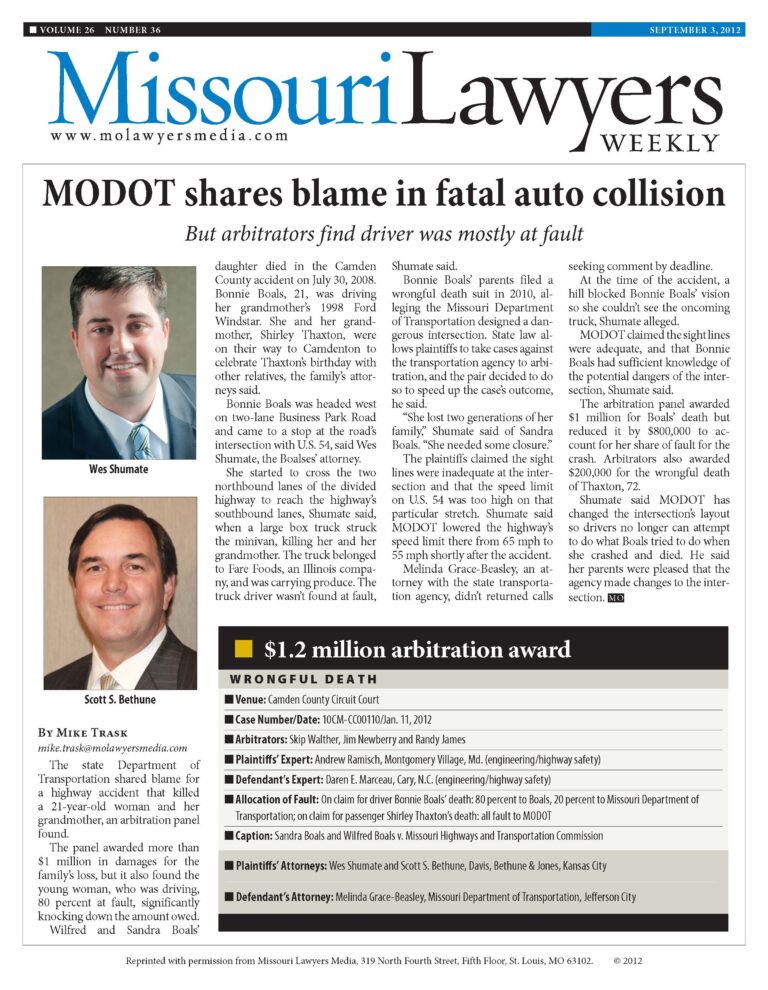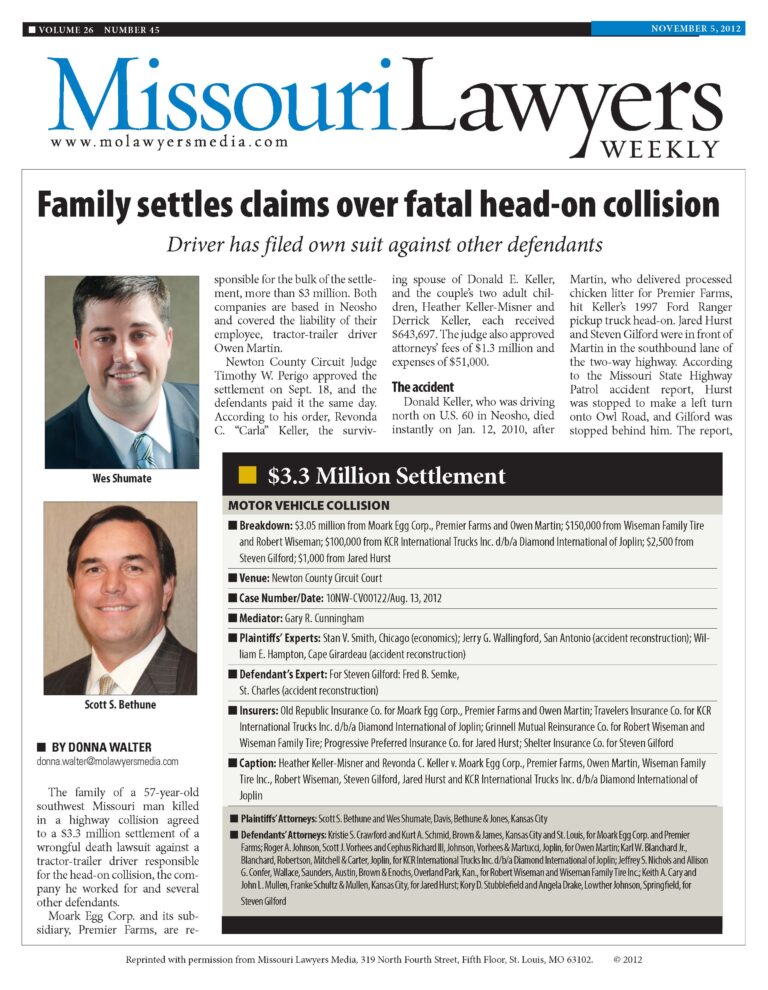A St. Louis County jury has awarded $48.4 million to an energy company that sued Chicago Title Insurance Co. for negligence.
The award appears to be the largest plaintiff verdict ever in St Louis County and is also the state’s largest plaintiff verdict this year, according to a review of Missouri Lawyers Weekly’s V&S Search database.
St. Louis County Circuit Court doesn’t keep historical records of verdict amounts, the administrator Paul Fox explained. But Missouri Lawyers Weekly in 2008 reported on a $21 million verdict for a man paralyzed in a car wreck that was at the time thought to be the largest personal injury award in the county court’s history.
According to the lawsuit, Abengoa Bioenergy U.S. Holding Inc. planned to build an ethanol plant in Kansas. As part of that process, the company sought zoning and permit approval from the City Council in the town of Colwich, Kansas, and was required to notify affected residents of the plan to build the plant. Abengoa, based in Chesterfield, hired Chicago Title to handle identifying such residents for the city to ensure they were notified.
Abengoa sued Chicago Title in 2008, alleging it botched the job and didn’t provide the city with a complete list of residents. As a result, Abengoa alleged some opposed residents calendar the plan in late 2006, and the company had to withdraw its zoning and permit requests and build in Illinois instead. “If you don’t give notice correctly, then everything afterward is void,” said Grant L. Davis, who was lead counsel for Abengoa.
“When residents sued over the plan, claiming they didn’t get proper notice, Chicago Title denied making an error and said their list was correct,” said Davis of Davis, Bethune & Jones in Kansas City.
“But as the case progressed,” he said, “an agent hired by Chicago Title to do the search said in a deposition that the company knew in May 2006 that the list was incomplete.”
Abengoa and its subsidiaries claimed the delays led to lost profits, increased costs, and other damages. Building in Illinois, Davis said, meant higher labor and construction costs, plus the grain itself that’s turned into ethanol is more expensive. In Kansas, the company planned to use milo, but in Illinois, it uses corn, he said.
Chicago Title denied in its answer to the suit that it failed to identify affected residents as required. Among other things, the title company also alleged that various other factors played a role, such as that Abengoa didn’t obtain its water permits in a timely manner.
Tim Noelker, of Thompson Coburn, in St. Louis, was among the attorneys for the defendant. Noelker said Chicago Title doesn’t comment on litigation. By the time of trial, Davis said, Chicago Title acknowledged making a mistake but argued it wasn’t negligent and that it owed less than $50,000 to cover studies and other initial work that Abengoa had to redo to resubmit its Kansas proposal, which it ultimately abandoned after residents challenged it again. The title company didn’t respond to Abengoa’s settlement demand, he said The jury returned the $48.4 million verdict after a nearly two-week trial. Attorney James Dowd, who worked on the case with Davis, said the verdict was the amount their economics expert, Michael Lewis, estimated the company sustained, assuming the plant eventually would be built.



